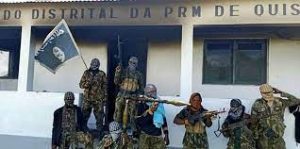The number of displaced people in Mozambique has risen to 723,000, Prime Minister Carlos Agostinho do Rosario announced on Wednesday according to allafrica.com.
Speaking in the Mozambican parliament, the Assembly of the Republic, at the start of a question and answer session between the government and the deputies, Rosario said that about 644,000 of the displaced have fled to parts of Cabo Delgado province regarded as safe from terrorist attack, while the rest are in neighbouring provinces, notably Nampula.
The figures also include 8.000 people displaced from their homes in the central province of Manica and Sofala, in attacks by the self-styled “Renamo Military Junta”.
Rosario said the government and its partners are providing humanitarian assistance to 715,000 displaced people living in transit accommodation centres or with host families in the Cabo Delgado provincial capital, Pemba, and the neighbouring districts.
He added that, in coordination with the defence and security forces, the government is providing aid for people who are still living in the districts ravaged by jihadist terrorism, including the town of Palma, attacked by the terrorists on 24 March.
In light of the increased number of internally displaced people, Rosario continued, the government had set up a ministerial working group to coordinate assistance to Cabo Delgado. That working group had drawn up a plan of action in coordination with the local authorities and with international cooperation partners “which contains concrete proposals for boosting humanitarian assistance to the people affected, and establishing conditions for the rapid normalisation of the people’s lives and the resumption of productive activity”.
The humanitarian assistance envisaged in the plan, Rosario continued, must be aimed at “the socio-economic development and recovery of the affected zones in Cabo Delgado”.
For the resumption of productive activity, the plan envisages the distribution of kits of agricultural and fishing inputs, and support for mall scale rural agro-processing industries. “Through this Plan, we want to ensure that the affected population, in the short and medium term can resume their normal life, and cease to depend on humanitarian aid”.
Implementation of actions contained in the plan, Rosario added, “will also create jobs and income opportunities, particularly for young people so that they are not vulnerable to the false promises made by the terrorist groups”.
Terrorism “is a global phenomenon”, said the Prime Minister, and so the government had been stepping up bilateral and multilateral cooperation against terrorism, especially in the framework of the Southern African Development Community (SADC). But “the prime responsibility lies with Mozambicans”.
Hence Mozambique “has been strengthening its domestic capacity on the various fronts of preventing and fighting terrorism including modernization of the operational capacity of the defence and security forces who are engaged in a relentless struggle against the terrorist groups”, declared Rosario.
Mozambicans must respond to terrorism “with just one voice and just one force”, he added. “We are confident that we Mozambicans, united and with the support of the international community, will defeat this threat of terrorism”.



